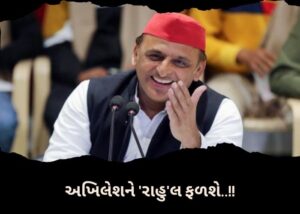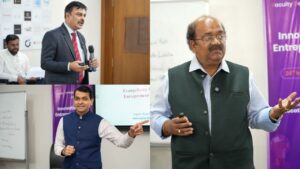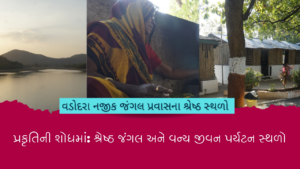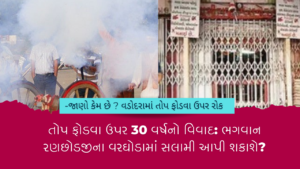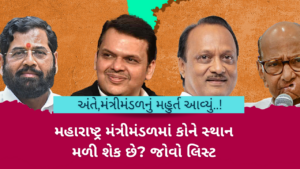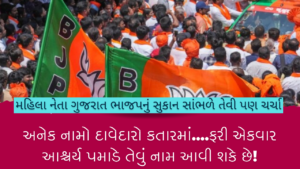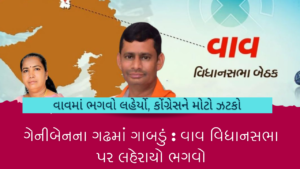The Election Commission of India (EC), in a bid to ensure an all-inclusive election process has proposed the idea of remote voting. Remote voting has been enabled to ensure that all inter- state migrants are able to cast their votes seamlessly. This process will be carried out via an RVM (Remote Voting Machine), also called a multi-constituency RVM.
A proposal for this was sent out to all recognized eight National and 57 State political parties by the EC on 28th January 2022 where they are requested to attend the demonstration of the prototype on January 16th 2023. Comments and feedback on the same is expected by 31st January 2023. On the basis of the feedback from party representatives and stakeholders, EC will carry out the necessary processes to implement the remote voting process.
What does the proposal entail and why do we need remote voting?
Observing the voter turnout in the last few years, there has been a steady decrease in the number of citizens voting. In light of this, the Election Commission expressed their concern over the decrease in the number of voters. According to official reports, 67.40% out of the 91.20 crore voters registered voted in 2019, which was higher than the voter turnout percentage in the 2014 Lok Sabha elections. However, according to EC a large number of electors were not exercising their constitutional right and chose to sit out during voting. The Major reason for this according to the body was internal migration.
Electors can register themselves on the Electoral Roll from their permanent constituencies, but most chose to retain their voter IDs from their home constituencies. In a 2015 Supreme Court hearing over a petition alleging the denial of voting opportunity for migrants, the SC asked the Election Commission to explore more options to ensure an all inclusive voting process for inter-state migrants.
An EC special committee was formed to look into the matter in 2016, but met with several shortfalls such as the term ‘Domestic Migrant’ remaining undefined and not counted in the central database and that the term ‘migrant’ had multiple different meaning by the RGI, ULEM and the NSSO. According to Census 2011, 37 % of the Indian population were referred to as ‘migrants’ while 75% of these migrants had moved away due to family reasons or those associated with marriage.
After considering several possibilities such as proxy voting, postal ballots for migrants, internet voting and more, EC did not recommend them. However, now, a solution for this has been devised by them.
EC has proposed, in a letter to political parties dated 28th December 2022, that they are requested to attend a demonstration of a prototype RVM (Remote Voting Machine) on 16th January 2023. They also requested the political parties to submit their suggestions and feedback by 31st January 2023.
What does this proposal look like?
The EC has come up with a modified version of the Electronic Voting Machine (EVM) in collaboration with the Electronics Corporation of India under the Department of Atomic Energy. A prototype RVM (Remote Voting Machine) that will handle 72 constituencies in a single remote polling booth will be set up in different states when elections of the migrant voters’ home states take place.
According to EC, this idea will be first tested in a State Assembly Election to enable internal migrants to cast their votes. Remote voters will have to pre-register for this process by applying for it either online or offline with the Returning Officers (ROs) of their home constituency. Special polling stations will be set up in the places where the remote voters currently reside then.
EC, in their concept note mentioned that the RVMs are non-networked systems. RVMs will be equipped with ballot displays that change with the selection of different constituencies. Remote voting will hence not be carried out in the form of a paper-ballot sheet. RVM’s will also replicate VVPATs to ensure voters are able to verify their votes.
The number of votes for each candidate for every constituency will be saved after which it will be tallied on the counting day and the results of which would be sent to the RO. While the proposal was deliberated, EC was asked how the entire remote voting process would be kept secure. EC sources have said that RVMs will not be connected to the internet and that the ROs in every remote location will then load the symbols of candidates into the unit using their laptops, which will also not be connected to the internet. Representatives from all participating parties will be invited to be present when the symbols are loaded onto the unit after which all symbols will then be put on for display.
Possible challenges to the proposal
National and State political parties have been given time until 31st January 2023 to respond with their comments, suggestions and feedback. A suggestions form that includes questions on how the Model Code of Conduct is to be implemented in these remote constituencies and how domestic migrants migrants should be identified can also be provided. Several political leaders however have reacted rather strongly to the announcement. For instance, the Communications Head of Congress spoke about ‘suspicious voting’ in light of the recent Gujarat State Assembly election where 10-12 percent votes were cast in the last hour of polling. He therefore also expressed his concern regarding this by saying that if suspicious voting is extended to multi-constituency voting, it would completely throw off the trust and confidence that the system has maintained so far, rendering it biased and partial.
Similarly, Trinamool Congress MP also responded by saying that EC’s proposal was “baseless and without logic” as they themselves had admitted that there were no databases available for migrants.
Major issues to this proposal include defining a domestic migrant, identifying a domestic migrant and providing remote voting facilities at all elections and determining whether all migrants are eligible for it. Resolving these factors are primary in determining the successful implementation of EC;s proposal. Secondly, how the Model Code of Conduct must be implemented in a remote location outside of a state, the number of booths to be set up , appointing polling personnel, ensuring identification of voters to avoid impersonation and many other reasons are included as part of the concerns over the proposal. The final challenge is that there is no consensus over the opinions of opposition parties as most of them have expressed their doubts over the proposal citing their reasons such as questionable reliability of the EVMs and that voting machines have been misused.
Going forward, the nation is waiting to see what the feedback is going to be like after 31st January, 2023.











